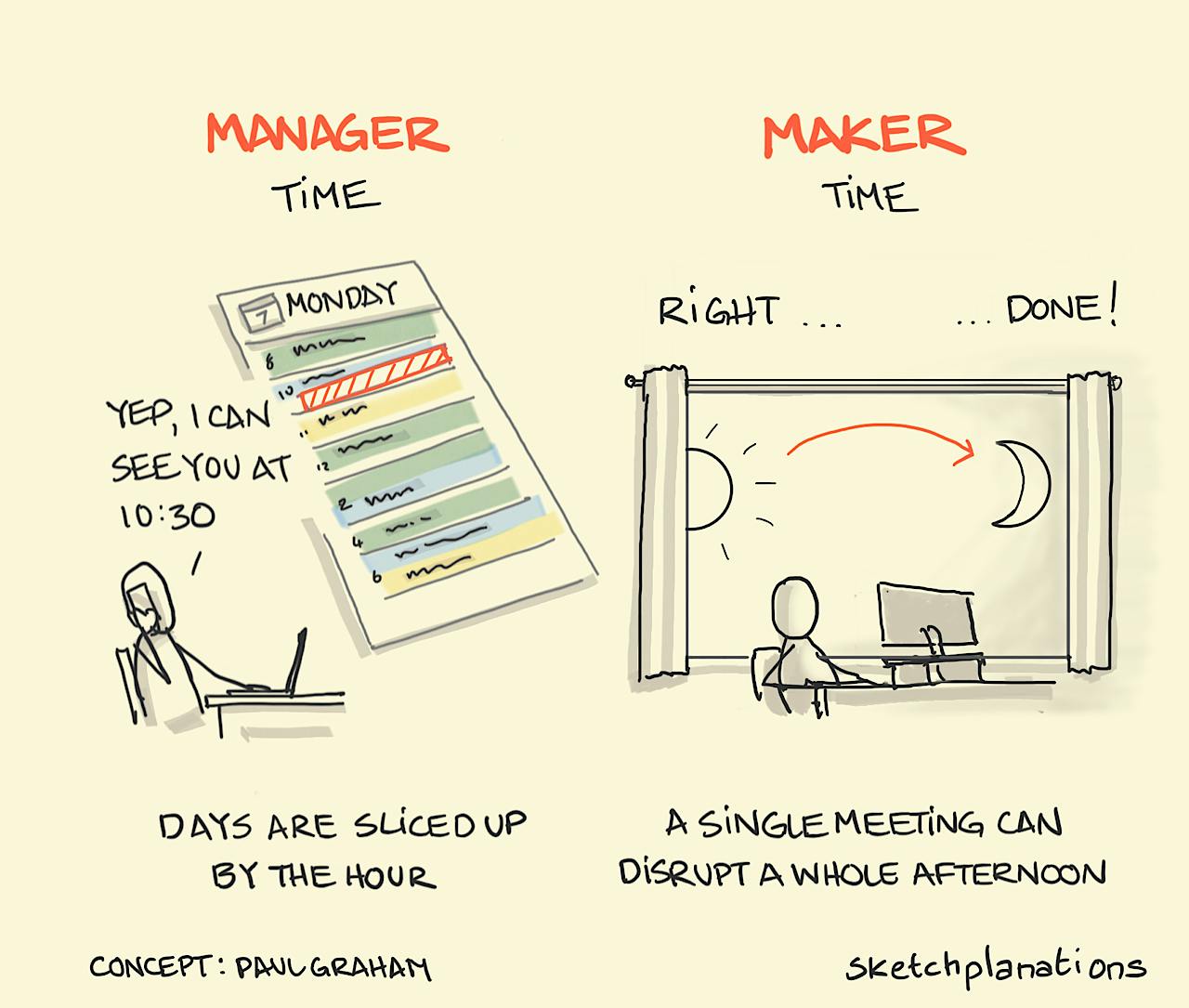Manager time, maker time

- Download
- Copied!
👇 Get new sketches each week
Manager Time and Maker Time explain how managers or makers need to manage time differently.
In Manager Time, a day is neatly sliced up into hourly chunks according to the calendar. Meeting someone is as easy as finding a free slot that coincides. You don’t have to worry too much about what you’ll be doing next as your calendar will tell you.
In Maker Time, a day is an open book to get something hard and meaningful done. Even thinking when a meeting might be and remembering to go can distract from getting on with making.
Long, uninterrupted chunks of time, not sliced and diced by meetings on the hour, are ideal for making progress on hard problems and tackling something new. Cal Newport calls this time Deep Work . Even a single meeting in the middle of an afternoon can disrupt that long, meaningful chunk into two, making it harder to tackle something big as you have to context switch and pick up where you left off.
Most modern offices operate on Manager Time. It’s great for meetings but comes at the cost of getting meaningful work done. If you’re a maker, you may associate with the feeling that to get some real work done, you need to do it on the weekend or an evening after everyone’s gone home, when you’ll be free of interruptions.
If you’re a manager, consider your makers when you schedule your next meeting.
This observation is from Paul Graham's excellent article Maker’s Schedule, Manager’s Schedule .
Related Ideas to Manager Time Maker Time
Also see:

